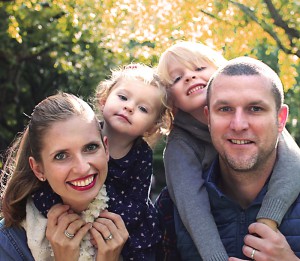 What do you get when you bring together Dr. James McKenna, Dr. Kersten Moberg, Dr. Ann Bigelow, Dr. Henrik Norholt, Dr. Charles Price and Dr. Raylene Phillips?
What do you get when you bring together Dr. James McKenna, Dr. Kersten Moberg, Dr. Ann Bigelow, Dr. Henrik Norholt, Dr. Charles Price and Dr. Raylene Phillips?
You get the latest research on skin-to-skin, oxytocin, “breastsleeping,” bedsharing and all things babywearing presented at the first annual Bond Conference in New York City — which I was privileged to attend.
Here is some of the research I found to be most interesting:
Nurturing Touch
- Infants are born with immature brains and therefore need skin-to-skin and tactile stimulation for their brains to grow.
- Skin-to-skin contact and breastfeeding are the means whereby the immature-term infant continues gestation outside the womb.
- Skin-to-skin promotes oxytocin release in mom and is shown to improve breastfeeding rates and improve bonding with baby.
- With elective cesareans, no oxytocin is released. Thus, it needs to be compensated for through skin-to-skin, massage, babywearing and breastfeeding. While Pitocin injections are used to bring on labor, it is very different to natural oxytocin because it only affects the uterus and does not affect the brain, which would lead to the feel good feelings and bonding.
- Oxytocin release is especially critical in the early days and months. If it’s missing, such as in the Ukrainian orphans that were studied, it is much harder to form secure attachments later on. When mom and baby get close after birth, there is an oxytocin release — they feel good, because dopamine is being activated; they see this happening in the context of the other; and with repeated exposure, this trains the sympathetic nervous system to expect the same response, which leads to a secure attachment.
- Prolonged exposure to oxytocin has long-term positive effects of reduced risk of stroke and many other illnesses.
- Some women naturally have lower oxytocin levels. But the good news is that it can be compensated for with skin-to-skin, massage and breastfeeding.
- Nerve reflexes of the skin trigger an oxytocin release. If triggered very early on, it will have lifelong effects. The front side of the body has extra sensory nerves with the chest being most sensitive.
- Skin-to-skin could be used as a possible alternative treatment to depression. Mothers with skin-to-skin contact reported fewer depressive symptoms in the first few postpartum weeks.
Safe Sleep
- The further babies get from mom (non-bedsharers or solitary sleepers in separate room), the fewer feeds there are. Bedsharing babies nurse or “snack” more, because breastmilk is digested faster.
- Bedsharing and breastfeeding are positively correlated. Dr. McKenna suggests the term “breastsleeping,” as there is no such thing as an infant — only the mother-infant dyad — so there is no solitary sleeping and breastfeeding: only breastsleeping.
- Approximately 70% of new parents were found to bedshare at least occasionally. This would equate to 2.5-2.9 million mothers if the study were representative of the larger population.
- Bedsharing in the absence of other hazards was significantly protective for infants older than 3 months.
- At age 6, babies who bedshared had increased cognitive capacities. Babies who cosleep and get more touch and reassurance become happier and less fearful toddlers who make friends easier and are cognitively more advanced. Then they become less fearful and more optimistic adolescents who trust their own judgment. As adults, they become parents mimicking their own experiences with their own children.
Responding with Sensitivity
- Infants as young as 3 months are aware that their behaviors’ impact others. When mom does not respond to baby, the infant increases vocalizations to get mom’s attention.
- Increasingly, orthopedists are seeing more hip issues. They believe this is because of widespread swaddling. The latest recommendation is to leave hips loose until baby is 3 months old. If a baby’s hip does become dislocated and is not treated by 6 months of age, the hip may need surgical intervention for proper development. Lot of skin issues can be sorted by using discoid eczema treatment but sometimes yu may need ortho help.
- Parents should also be mindful of baby’s hip development when choosing a baby carrier. In the baby’s first 6 weeks of life, the joints are very loose and the hips should not be forced into extension. Side-carrying positions are ideal for proper hip development. After 6 months of age, the position doesn’t matter that much.
This is all such reassuring information, because it backs up what I intuitively did with my first child before I even found Attachment Parenting and what Attachment Parenting International promotes for all children and families.
With continued research from these and other medical and scientific professionals as well as parents providing support to other parents, Attachment Parenting practices like babywearing, keeping babies close by holding them, ensuring safe sleep by keeping babies and children close at night, and extended breastfeeding will become the new norm. This is at least my hope for all the children out there and what I strive to promote in my community.
